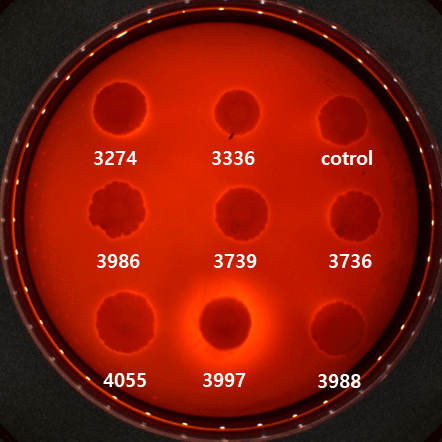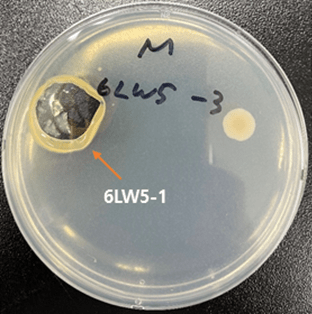The National Nakdong River Biological Resource Center under the Ministry of Environment announced on the 7th that they discovered a new microorganism from Gyeongpo Lake in Gangneung City, from which they extracted the enzyme ‘β-agarase’ that breaks down agar, thereby confirming the possibility of producing functional oligosaccharides.
The research team at the National Nakdong River Biological Resource Center discovered a new microorganism from the genus Catenovulum in Gyeongpo Lake in June 2022. Gyeongpo Lake is a lagoon where fresh water and sea water meet, creating a unique ecological environment. The microorganism contained numerous agarase genes that break down agarose, the main component of agar. Among these, the enzyme β-agarase with the highest activity was selected.
The obtained β-agarase was found to break down agar into neoagarobiose (NA2) and neoagarohexaose (NA4). Both substances are oligosaccharides with various physiological activities, such as promoting the growth of beneficial gut bacteria and enhancing immune functions. These low-molecular-weight carbohydrates derived from agar have been reported to have the potential for use in food, cosmetics, and medical materials.

The research team analyzed the degradation products through experiments using the enzyme and, based on this, filed two patents at the end of June 2025 on ‘New strain of Catenovulum genus and its use’ and ‘New gene encoding β-agarase enzyme and its use.’

The isolated microorganism showed a 96.2% similarity in the 16S rRNA gene to Catenovulum adriaticum TS8 and was identified as a new species through phylogenetic and electron microscopy analyses. This bacterium was observed to be a rod-shaped bacterium without flagella.
The National Nakdong River Biological Resource Center plans to enhance the enzyme’s functionality through follow-up research, increase its industrial applicability, and expand its commercialization potential.
Kim Eui-jin, head of the Biological Resource Research Division at the National Nakdong River Biological Resource Center, stated, “This study is a case of simultaneously discovering new biological resources and confirming their application potential based on microorganisms secured from Korea’s unique ecological environment, contributing to enhancing the value of indigenous biological resources and securing biological sovereignty.”